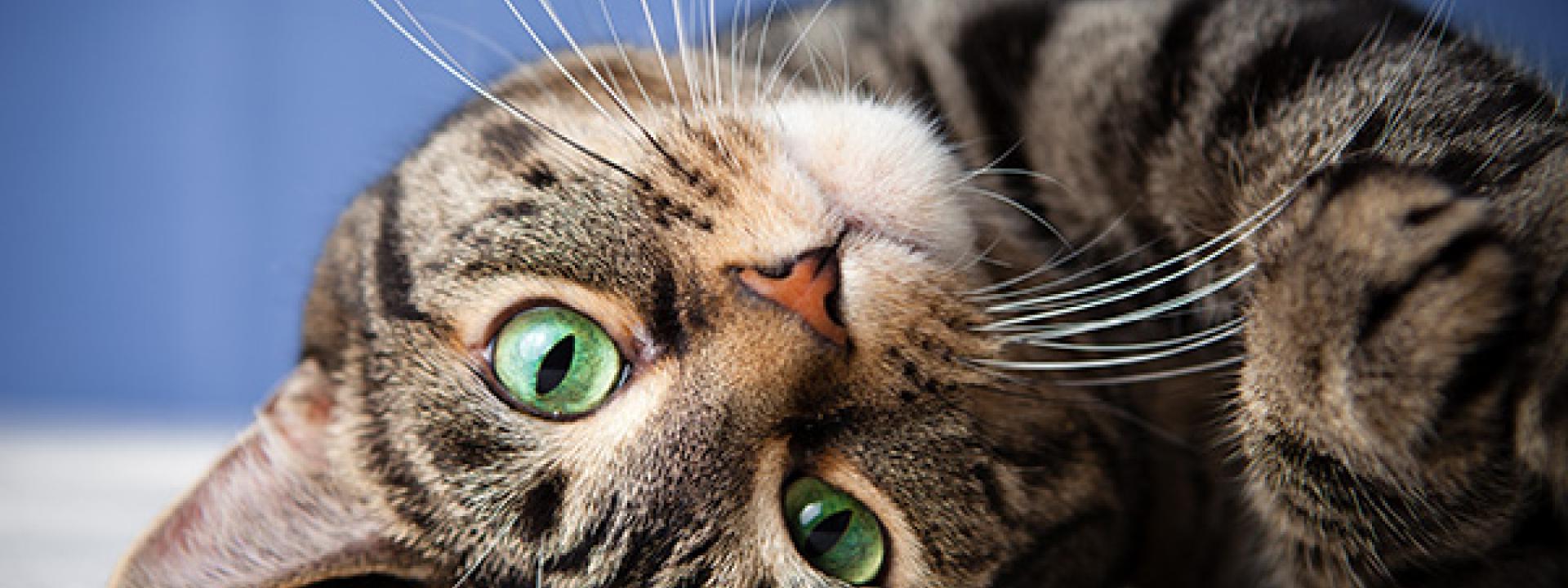
The thyroid gland is important for secreting thyroid hormone throughout the body. The function of the thyroid gland affects most all other organ systems in the body. When the gland malfunctions, it can cause a multitude of problems. A common type of dysfunction in cats is hyperthyroid (overactive thyroid). This is most commonly caused by a benign tumor in the thyroid gland that over-stimulates the thyroid gland to make too much hormone. Since it is a tumor (or tumors) that triggers this, it is more commonly seen in older cats (often over 7 years old).
The classic symptoms for a hyperthyroid cat include drinking a lot of water, urinating excessively (in the box or maybe out of the box), and eating excessively/acting hungry yet continuing to lose weight. Some of these cats can seem agitated, hyper, active and yowling especially at night. Depending on the severity of disease or outward symptoms, you may also find a cat that can suddenly go blind (often related to high blood pressure causing detached retinas). And on a physical exam, we may find a cat has a palpable thyroid gland, a heart murmur/damage to the heart or labs with worsening damage to kidneys (which may initially seem “hidden” on a blood panel as the blood pressure is high giving the kidneys extra blood flow).
Diagnosis in many cases can be as simple as symptoms that fit the disease and a blood T4 test in house that says the numbers are high. However, there may be other tests necessary to detect a cat that is borderline. As well as other tests and procedures to help determine complicating factors of the disease (like blood pressure, other organ/kidney testing, urinalysis, etc).
Treatment can involve several options: The “gold standard” treatment and actual cure of the disease is to go to a specialist that performs radioactive iodine treatment. Treated cats can be fully cured of the disease and not need any further medication. Some cats can get another tumor in their lifetime that restarts the disease, but often the original tumor is cured with the radioactive iodine treatment. This can be repeated if necessary for future benign tumors. . Another common method of treatment is a medication called methimazole. It can be given in pill form, liquid, or compounded into a transdermal depending on how it is necessary to administer to the specific cat. In some cases a special prescription diet may help the excess thyroid hormone. Thyroid surgery is the least common method of treatment these days.
All in all, hyperthyroid can be a very well-managed disease. Many cats can have a resolution of their symptoms and resume years of a healthy life. Untreated, hyperthyroid will slowly destroy many organs and slowly cause the kitty to literally “waste away”. Hyperthyroid disease can mimic other common older kitty diseases and cats can often have multiple typical older kitty diseases at the same time, so a thorough workup is recommended to be sure we diagnose and treat the correct issues!
Dr. Kristin Christy Animal Hospital of Statesville
